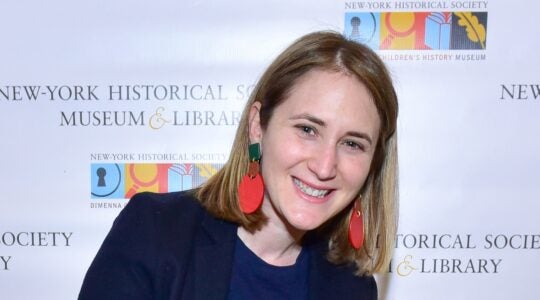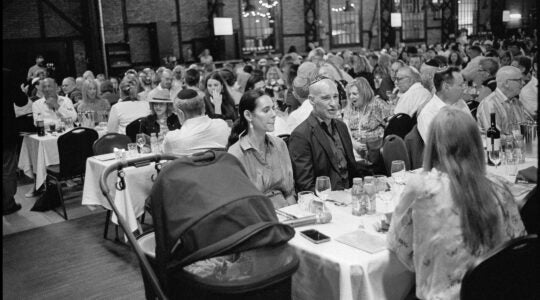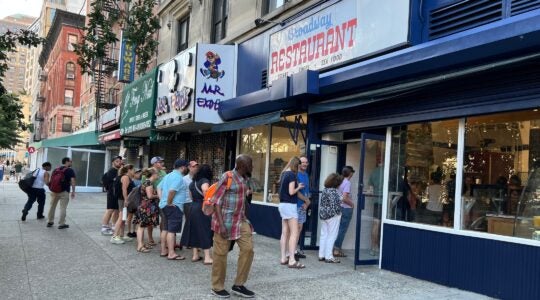While Israel mourned the four rabbis murdered at the Torat Moshe yeshiva in Jerusalem this week, the country’s security forces announced new measures to protect the public and Israelis braced for an escalation of Israeli-Palestinian violence.
The venue and timing of the terrorist attack, during morning Shacharit services in the yeshiva, is being seen in Israel as a game changer that will prompt Israel to crack down on the Palestinian community, political observers said.
Some wondered if early national elections, which have been rumored for some time, are in the offing as a result of the attacks.
“The fact is that it’s an attack on a place of worship means that this [latest wave of months-long Palestinian violence in east Jerusalem and the Temple Mount] is not a fluke,” said Daniel Nisman, president of Levantine Group, a consulting group on Middle East Security. “We’re in a wave, we’re in a campaign.”
In the wake of the attacks, Israeli Police Commissioner Yohanan Danino raised the country’s threat level to one notch below the highest designation. He said patrols around mosques, synagogues and other religious sites would be increased.
The four rabbis were killed, and several worshippers were injured, when two Arabs from east Jerusalem stormed into the building, armed with an ax, a meat cleaver and a gun. They were killed in a shootout with police.
The victims were Rabbi Moshe Twersky, 59; Rabbi Aryeh Kupinsky, 40; Rabbi Kalman Levine, 50; Rabbi Avraham Shmuel Goldberg, 68; and Zudan Saif, 30, a police officer.
The murders were condemned by the international community, including U.S. Secretary of State John Kerry, who called the attack an act of “pure terror,” and Bahrain’s foreign minister Khalid Bin Ahmed Al Khalifa, who said “the murder of innocents in the synagogue will not be worth the price paid for it, [which will be] more collective punishment of the Palestinian people and more injustice and aggression.”
Public Security Minister Yitzhak Aharonovitch, who pledged to ease controls on carrying weapons for self-defense, instructed synagogues to install security guards at their entrances, and Sephardic Chief Rabbi Yitzhak Yosef said Jews should not pray in a synagogue that lacks an armed guard.
Political observers debated whether Prime Minister Benjamin Netanyahu, who promised a strong Israeli response to the Torat Moshe killings and called on the Palestinian Authority to stop what he termed “incitement,” would call early Knesset elections, which have been rumored for several months.
Mitchell Barak, a public opinion expert, said the possibility of early elections means that Netanyahu is likely to make more strident statements and take more assertive actions in order to compete with challengers on his right. “Netanyahu is really in a jam because he can’t restore security easily because it’s a vigilante intifada. Any of the terrorists so far have acted on their own, with no centralized direction.”
“This is the direct result of the incitement by Hamas and Abu Mazen [PA President Mahmoud Abbas],” said Netanyahu, who ordered the demolition of the perpetrators’ homes in the east Jerusalem neighborhood of Jabel Mukaber, which led to riots by residents. “We will respond with a strong hand to the cruel murder of Jews who came to pray and were caught by dark murderous hands,” he said.
Abbas condemned the attacks, saying that civilians — as well as holy and religious sites — should never be targeted. “While we condemn this incident, we also condemn the aggression toward Al-Aqsa Mosque and other holy places and torching of mosques and churches,” he said at the start of a meeting of the Palestinian security services in Ramallah.
A stronger Israeli response to the terrorism is expected in coming weeks. “Abbas declared war on Israel, and we must treat it accordingly,” said Economic Minister Naftali Bennett of the hawkish Jewish Home party. Eli Yishai of the Shas party, who lives in Har Nof, not far from Torat Moshe, called on security forces to treat the situation in Israel like a war. “This is a war inside of Israel for its very existence.”
“We must have a tough response towards the terrorists and those who send them,” said Jerusalem Mayor Nir Barkat. He said Israel needs to shorten the legal process to clear the way for home demolitions.
Science Minister Yaakov Perry, a former Shin Bet director, called for a more massive police presence in Arab neighborhoods.
Defense Minister Moshe Ya’alon vowed that Israel will “chase down the perpetrators and those who sent them, everywhere and in every way, within the borders of Israel and outside. Part of it is going to be tightening security, in including limited freedom of movement. I expect to see clamping down on access from Arab neighborhoods to Jewish neighborhoods, but more importantly at checkpoints in the West Bank.”
Nisman said the current attacks, which follow this summer’s Operation Protective Edge fighting against Hamas terrorists in Gaza, amount to a de facto intifada, similar to past organized Arab uprisings in Israel.
“The reason they don’t call it an intifada is because [experts] are so used to having an organized intifada,” he said. “It’s similar in many respects to the first intifada: It’s a microcosm of the first intifada, its just happening in Jerusalem: a combination of rioting and unsophisticated attacks.”
However Gerald Steinberg, a political science professor at Bar-Ilan University, disagreed.
“I see these attacks as still largely uncoordinated, without a central guiding hand,” he said. “They’re part of an escalation. The frequency and the intensity has been escalating. An attack on worshippers in a synagogue with a gun is an escalation. But I wouldn’t compare this to the wave of attacks that was coordinated and supported by Arafat and his group. There’s no Arafat, there’s no personage to maintain this kind of activity.”
“I would not compare this at all to what was called the second intifada,” Steinberg said. “This is more than a single isolated attack, this is a period of tension.”
Staff writer Steve Lipman contributed to this report.
The New York Jewish Week brings you the stories behind the headlines, keeping you connected to Jewish life in New York. Help sustain the reporting you trust by donating today.




